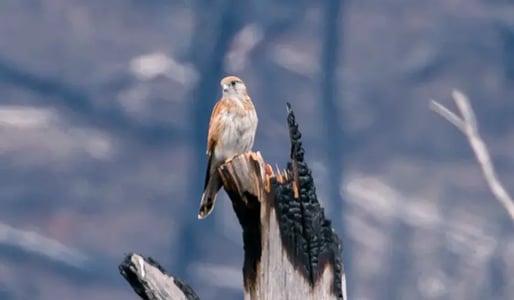wildlife bushfire
safety tips
- Home
- What We Do
- Wildlife Information
- Emergency Information
- Wildlife Bushfire Safety Tips
During major bushfires, animals in the immediate area may be unable to escape the fire, while those on the fringes can suffer from injury or displacement. Injured wildlife may also be found in need of urgent care after fleeing the flames, often hit by cars on roads or seeking food on the outskirts.
After the fires, animals may continue to be found in distress. Displaced animals may move into populated areas in search of food, water, and shelter. Some animals may not show obvious injuries but could have burns on their feet, tails, or may be experiencing smoke inhalation, dehydration, or starvation.
Please report sick, injured, or orphaned wildlife and read WIRES Emergency Advice for assistance.

How you can help if you are in a fire-impacted area
- Keep Domestic Pets Safe
Keep cats indoors and dogs under control to allow wildlife to flee safely through your property. If evacuating, take your pets with you.
- Provide Water for Wildlife
Leave shallow bowls of clean water outside for wildlife escaping the fire. Add sticks or stones on one side to help small animals escape if they fall in. Ensure the water is changed daily.
- Check Pools and Skimmer Boxes
Check your pool and skimmer boxes twice a day for wildlife that may have fallen in. Provide ropes or platforms to help animals climb out.
- Be Vigilant on the Road
Be aware of wildlife on the roads and drive carefully. Keep a cardboard box, gloves, hand sanitiser, and a towel in your car to safely contain any injured wildlife.
- Rescuing Burned Animals
If you find an animal with burns, do not attempt to feed it. Gently wrap the animal in a 100% cotton cloth, place it in a ventilated box with a lid, and keep it in a dark, quiet place while awaiting rescue or transport to the nearest vet.
Staying Safe
Fire events present significant risks to volunteers and the public. It is crucial that all rescue efforts follow the instructions of first responder organisations such as the RFS and Fire & Rescue NSW.
Do not attempt to enter active fire areas unless authorised. Trained wildlife personnel will work in collaboration with first responders.
If there are fires in your area, stay safe by:
- Calling 000 if you require emergency assistance.
- Checking current Fire Danger Ratings and Fire Alerts.
- Monitoring weather conditions on the Bureau of Meteorology website.
- Packing an Emergency Survival Kit.
Additional ways to help
- Volunteer
Wildlife rescue and care during emergencies are complex and require trained personnel. As untrained volunteers cannot directly care for animals, WIRES encourages anyone wanting to help wildlife on an ongoing basis to join WIRES as a volunteer.
- Donating Goods
Donations of goods during disaster events are greatly appreciated. However, the quantity of donations may sometimes exceed capacity. Please check WIRES' Donations Page for up-to-date information on what is needed.
- Monetary Donations
Donations allow WIRES to provide immediate support for emergency responses and 24/7 rescue operations, ensuring the long-term sustainability of wildlife recovery programs. Donations help buy critical supplies and maintain wildlife care year-round.